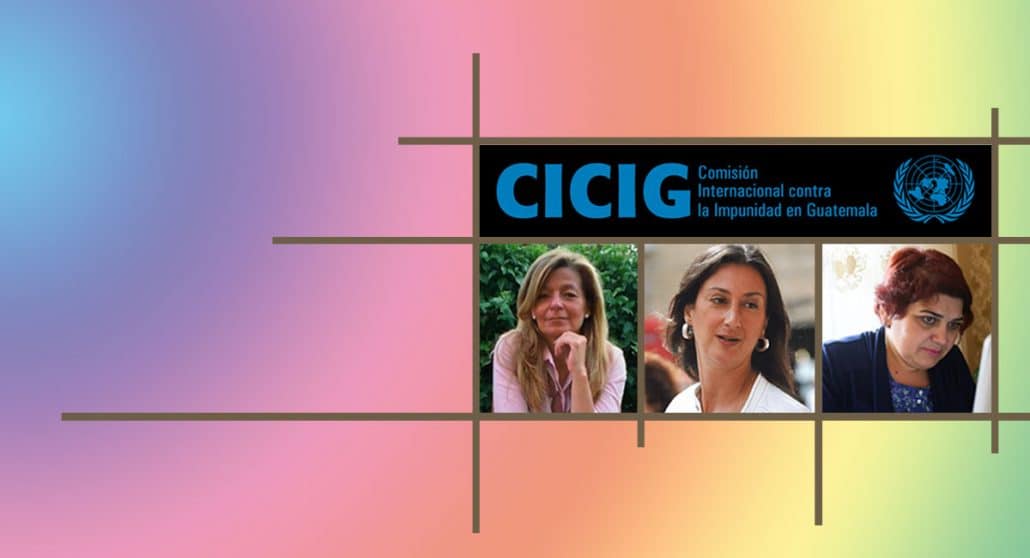Update, 23 October 2018: Transparency International announced yesterday evening that there are two winners of this year’s Anti-Corruption Award. They are Ana Garrido Ramos and Daphne Caruana Galizia, who receives the award posthumously.
Galizia’s son Paul Caruana Galizia tweeted: “On the same day that @MaltaGov says in parliament that it refuses to mark the first anniversary of #DaphneCaruanaGalizia’s assassination, she is awarded Transparency International’s Anti-Corruption Award”.
Watch the videos below to learn more about these brave women:
Journalist Daphne Caruana Galizia is one of the two #AntiCorruptionAward winners 2018. She was a brave investigative journalist who exposed major corruption scandals involving powerful politicians in #Malta. She was murdered in October 2017. This is her story. #18IACC pic.twitter.com/P80gCrdeAM
— Transparency Int'l (@anticorruption) October 22, 2018
.@AnaGarridoRamos is one of the two 2018 #AntiCorruptionAward Winners. She's a former public servant at Boadilla del Monte Town Hall in #Madrid, whose whistleblower revelations triggered the Gürtel case that led to the fall of the Spanish government. This is her story. #18IACC pic.twitter.com/gIa1UgAK7J
— Transparency Int'l (@anticorruption) October 22, 2018
Today Transparency International (TI) announces the recipient of the 2018 Anti-Corruption Award. This year’s four shortlisted candidates – three individuals and one organisation – have risked their reputations and their lives in their determination to expose corruption.
In one case, that life was lost.
The four shortlisted candidates were selected from 169 nominated individuals and institutions. More than 1 000 nominations were received, mostly from members of the public.
Launched in 2000 as the Integrity Award, and renamed in 2016, the Anti-Corruption Award honours remarkable individuals and organisations worldwide, including journalists, public prosecutors, government officials and civil society leaders.
South Africa’s former public protector Thuli Madonsela received the award in 2014.
Exposing corruption at all costs
The two journalists, Daphne Galizia and Khadija Ismayilova, have experienced victimisation, violence, imprisonment and harrassment for working to expose corruption. Galizia was murdered in October 2017 in Bidnija, Malta, in a car bomb attack.
Ismayilova, meanwhile, was jailed in September 2015 for seven and a half years on allegedly false charges of tax evasion and embezzlement. She was released after serving less than a year, freed by the Azerbaijani supreme court after judges changed her sentence to a three-and-a-half-year suspended term.
Ana Garrido Ramos, a former public servant at Madrid’s Boadilla del Monte Town Hall, is a whistle-blower in the on-going Gürtel case that led to the fall of the local government. She was ill-treated at work, even received death threats, and developed clinical depression. The town council terminated her job in 2014 with an out-of-court settlement – which she has not received because the council has appealed – when an employment tribunal in Madrid took on her case of harrassment.
The International Commission against Impunity in Guatemala (CICIG) was set up in 2006 as an independent international body, through an agreement with the UN and the Guatemalan government. The CICIG is charged with investigating and prosecuting serious crime in Guatemala but has been heavily criticised, accused of acting on behalf of the US and EU, and has faced institutional and political resistance from certain sectors. It has, however, had a significant effect on criminal networks. Among its powers, the CICIG can initiate administrative proceedings against public officials who are not fulfilling their responsibilities or are blocking, by action or inaction, the commission’s work.
In September this year CICIG commissioner Iván Velázquez was prevented from re-entering Guatemala.
Corruption can be challenged
“Through their tireless work and bravery, the three individuals and one institution shortlisted for the 2018 Anti-Corruption Award each send a strong message: that corruption can be challenged. However, each of their stories also speaks to the intense pressure and dangers faced by those who stand up against injustice,” said TI board member Boris Divjak, the chairperson of the Anti-Corruption Awards Committee.
“In shortlisting these four inspiring candidates, we celebrate their impact and their courage.”
- Daphne Caruana Galizia (posthumous) was a brave and effective investigative journalist who exposed major corruption scandals involving powerful politicians and other individuals in Malta and abroad. She was murdered in October 2017.
“Daphne’s battle was a dangerous one and that the bravery with which she fought it should serve as an example to us all as we continue her unfinished fight.” – Paul Caruana Galizia, son of Daphne.
- The International Commission against Impunity in Guatemala (CICIG) is an international body charged with investigating and prosecuting serious crime in Guatemala. Iván Velázquez, the CCIG Commissioner, has recently been banned from entering the country.
“The anti-corruption struggle is unstoppable, despite the opposition and obstacles, the clamour for more transparent democracies and greater accountability will not stop.” – Matías Ponce, CICIG spokesperson.
- Khadija Ismayilova is a celebrated investigative journalist and human rights activist in Azerbaijan, currently facing a travel ban. She has contributed multiple investigative reports to Radio Free Europe and the Organized Crime and Corruption Reporting Project (OCCRP).
“Everyday we hear about killing, arrest, or harassment of journalists who uncover corruption and rarely we witness corrupt leaders paying a price for their crimes. Bad guys help each other to silence critics and hide stolen wealth. It is time for those who expose them to work together.” – Khadija Ismayilova
- Ana Garrido Ramos is a former public servant at Boadilla del Monte Town Hall in Madrid, Spain, whose whistleblower revelations triggered the Gürtel case that led to the fall of the Spanish government. She is campaigning for effective whistleblower protection legislation.
“Citizens can not sit idly by waiting for the world to change, each of us must be part of that transformation.” – Ana Garrido Ramos.

